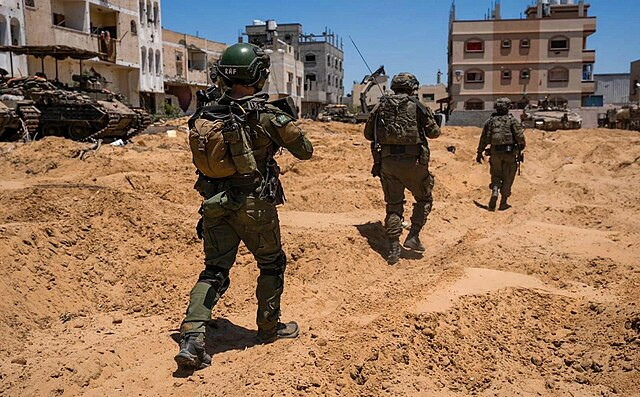Israel has redirected its military focus to the West Bank following a delicate ceasefire agreement in Gaza, launching a sweeping campaign targeting Palestinian militant factions. The operations, which have left at least 12 Palestinians dead and displaced tens of thousands, mark a significant escalation in Israeli efforts to dismantle what officials describe as growing militant networks in the region.
The Israeli Defense Forces (IDF) have imposed extensive roadblocks, conducted raids, and sealed off communities, particularly in and around the Jenin refugee camp, long considered a stronghold for militant activity. Defense Minister Israel Katz has framed the campaign, referred to as "Operation Iron Wall," as a necessary measure to eliminate terrorist infrastructure and ensure that such groups cannot reemerge.
Jenin has seen some of the heaviest military action, with thousands of residents fleeing the area. Kamal Abu Al-Roub, the governor of Jenin, described the camp as being under siege, with basic services such as water cut off. Al-Roub stated that over 20,000 residents have been displaced amid the ongoing operation. Palestinian officials have reported multiple civilian casualties, including a well-known businessman shot dead while driving with his young son near the camp.
The heightened military presence has paralyzed movement across much of the West Bank. Roads leading into major cities such as Jericho and Ramallah are now dotted with military checkpoints, creating long delays. Some checkpoints have reportedly prevented access to medical care, with the Palestinian Ministry of Health citing the death of a woman who suffered a heart attack after being blocked from reaching a hospital.
Israeli officials assert that the campaign is necessary to prevent the West Bank from becoming a mirror image of Gaza, where militant groups such as Hamas have wielded significant influence. Katz has pointed to alleged Iranian support for militant factions in the West Bank as justification for the intensified actions, stating that Israel would act decisively to "cut off Iran's tentacles."
The operations come as Israeli hardliners in Prime Minister Benjamin Netanyahu's government push for more aggressive measures in the West Bank. Far-right Finance Minister Bezalel Smotrich has claimed that the cabinet has elevated West Bank security to a national priority. Smotrich's comments reflect a growing sentiment among Israeli right-wing factions that the region should be annexed, a stance emboldened by shifting U.S. policies during the Trump administration.
Trump's first term saw the United States abandon its longstanding position that Israeli settlements in the West Bank are illegal under international law. This departure, along with recent comments by Trump administration figures suggesting that Israel has a "biblical right" to annex the territory, has further inflamed tensions. Over 500,000 Israeli settlers currently reside in the West Bank, where their presence is widely regarded as a violation of international law.
Critics have accused Israel of employing disproportionate force in the West Bank. The Norwegian Refugee Council has condemned the military's tactics as "unlawful" and "indiscriminate." Palestinian leaders and residents have described the operations as collective punishment, with Mustafa Barghouti, an independent politician, noting that while Israeli settlers move freely, Palestinian civilians face widespread restrictions and violence.




